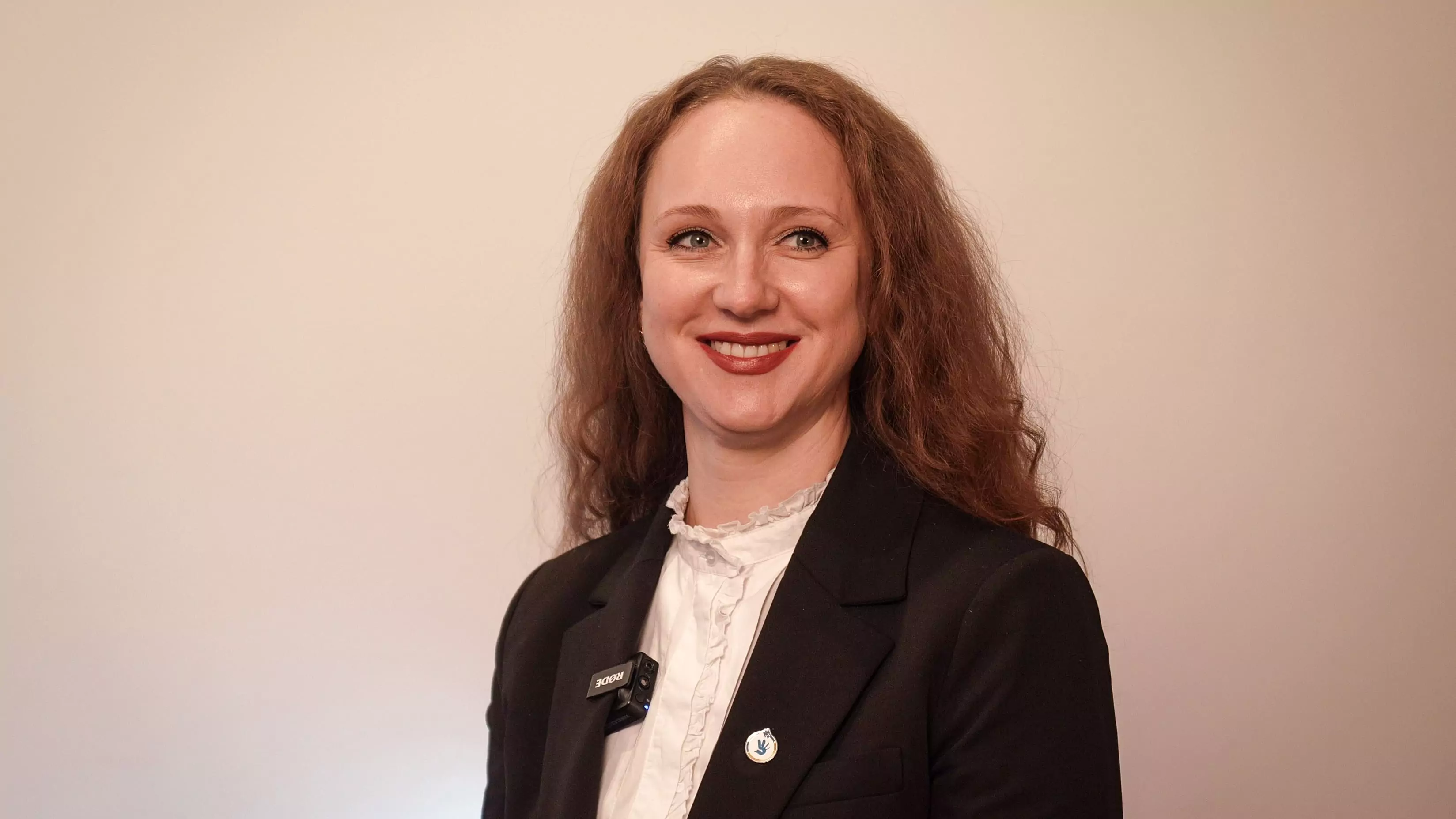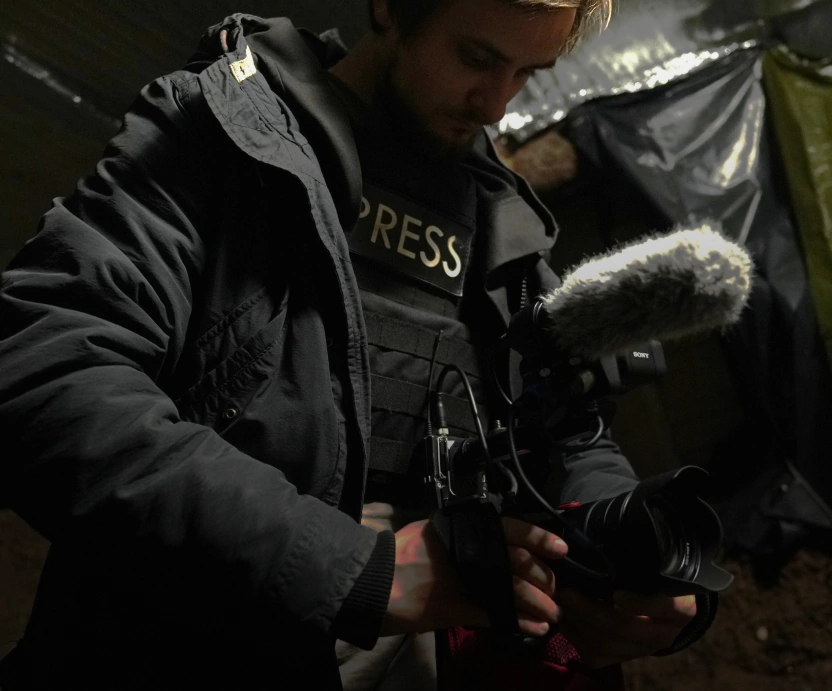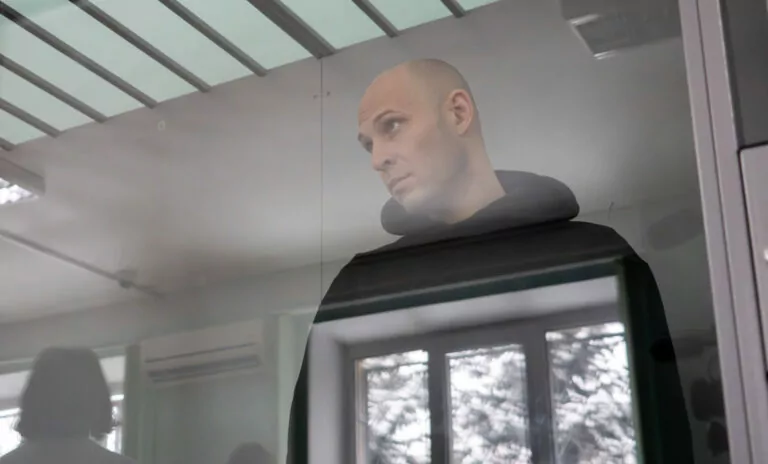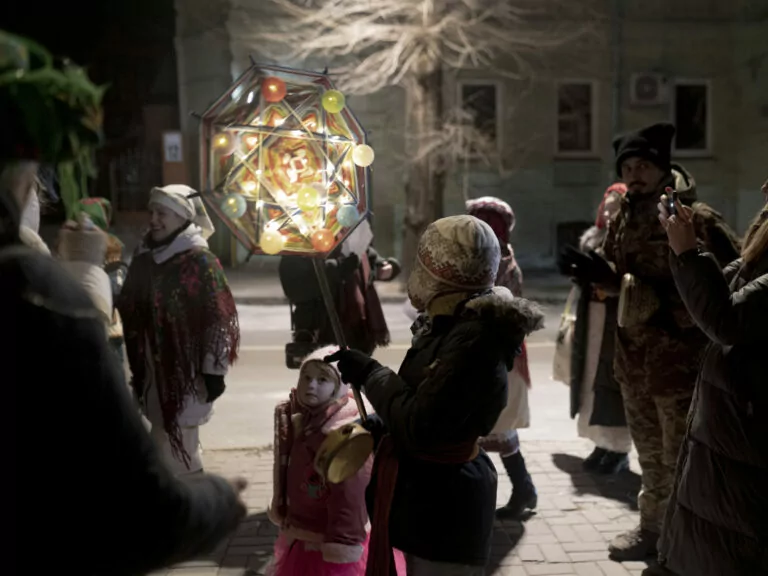Since Russia occupied Crimea and launched an invasion of the Donetsk and Luhansk regions in 2014, the problem of war-related human rights violations has become a significant part of living in Ukraine. In 2017, Ukrainian human rights defenders reported abductions, sexual violence, and executions of POWs on occupied territories to the UN. On February 24, 2022, Russia launched a full-scale invasion of Ukraine. Since then, the number of human rights violations has rapidly increased: in the Kharkiv region alone, the Ukrainian authorities registered more than 7,000 of them.
One of the institutions that monitors human rights violations in Ukraine is the Office of Human Rights Commissioner that operates under the Ukrainian Parliament (Verkhovna Rada).They accept appeals from citizens who believe their rights have been violated and help to determine if that is the case. In 2023, the Ombudsman of Ukraine Dmytro Lubinets appointed Oksana Cherviakova, an associate professor in the Department of Military Law at Yaroslav Mudryi National Law University, as the head of his regional Office in Kharkiv.
We’ve talked to Cherviakova about the most pressing human rights issues in the Kharkiv region: the forceful detention of conscripts, abduction of Ukrainian children from occupied territories, and the conditions of Ukrainian POWs in Russia.
This interview has been edited and shortened for better readability.
Gwara Media: Has the number of appeals increased in Kharkiv Oblast?
Oksana Cherviakova: Kharkiv, Dnipropetrovsk, and Kyiv regions have the highest number of appeals, and their leading positions switch depending on the month.
GM: What appeals are most common for your office?
Oksana Cherviakova: Mostly, it’s the appeals from the families of POWs, people whose relatives are missing in action, and soldiers and officers who are facing problems in the army. By and large, this tendency hasn’t changed for months, and it persists throughout the year. Also, there are many appeals regarding violations of children’s rights and the violations caused by the Russian invasion—for instance, appeals from internally displaced persons (IDPs) or refugees abroad who faced injustice in the hosting countries.
Forced detentions of conscripts
On February 24, 2022, President Volodymyr Zelenskyy, in cooperation with Ukraine’s Parliament, announced the general mobilization and declared martial law—and, as of January 2025, they’ve been extended for the 14th time.
According to current legislation, all eligible men aged 25 to 60 are subject to mobilization. However, 6 million conscript-age men didn’t update their residential addresses and personal data in state recruitment centers, which potentially indicates an attempt to avoid enlisting, a crime in Ukraine. The Ukrainian media Radio NV, based on the Defence Ministry’s data, reported that nearly 400 thousand men were suspected of draft dodging. The police have the right to detain individuals suspected of these types of crime. However, there are cases when military personnel from the recruitment centers detained men without any justified reason.
Gwara Media: Do you accept the appeals about illegal, forced detentions of people eligible for the military?
Oksana Cherviakova: Of course. But not all of them really concern illegal detention. However, we aren’t competent to evaluate [the validity of] these cases, so we contact the military commissariat or police to clarify the circumstances. If we do see a violation of law in the appellant’s case, we contact institutions who [are authorized to] pass judgment and punish offenders.
GM: Do you know about the cases of police ignoring offenses committed by military personnel at the state recruitment centers?
Oksana Cherviakova: No, I have never dealt with such cases. All institutions control each other; it’s a system of checks and balances. So, if we find out that the police ignore offenses from military personnel at recruiting centers, we will appeal to all services that control the police. For example, if we talk about the abduction of the conscripts, [the case] could be [sent to] the State Bureau of Investigation. Also, we can always ask the administrations of such institutions to evaluate their subordinates’ work.
GM: The Ombudsman, Dmytro Lubinets, said his representatives have full access to the recruiting centers. Have you had any cases when you went physically to these facilities?
Oksana Cherviakova: No, I never had these emergency cases like this. But we had the case from the Volyn region. The issue was that military personnel prevented lawyers from accessing recruitment centers. Moreover, some [local] officials claimed they supported this action. So, Yulia Spas, the representative of the Ombudsman in Volyn Oblast reacted to it. Our agency has always believed that lawyers must be allowed to recruitment centers to protect human rights in these facilities.
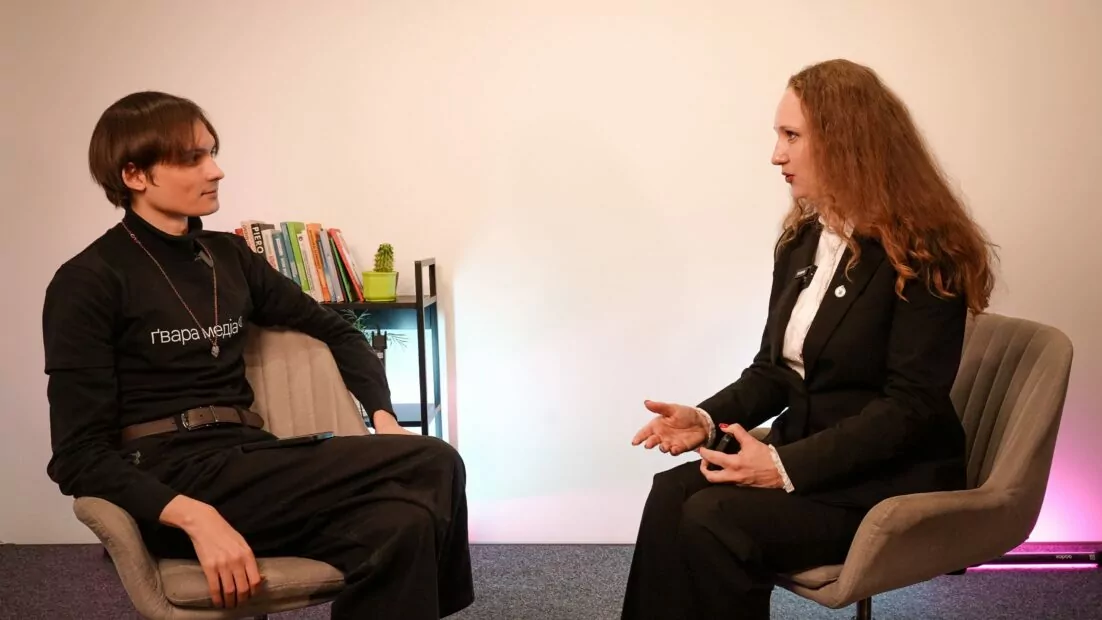
Ukrainian prisoners of war
Currently, more than 10 thousand Ukrainian soldiers are in Russian captivity. On December 31, 2024, the UN published a human rights report, highlighting worsening conditions of detention of Ukrainian POWs. The execution of Ukrainian POWs by Russian soldiers has become more and more common: In 2024, independent verification confirmed 62 executions of Ukrainian soldiers with at least 19 victims identified. In captivity, the UN report says, torture and sexual assault are regular and widespread.
While the UN also addressed the harsh treatment of Russian POWs, the report’s authors pointed out that such incidents are much less common and typically occur at the beginning of captivity, while prisoners are being moved between locations.
Gwara Media: How does the Office of Ombudsman control the monitoring of human rights of POWs in Ukraine?
Oksana Cherviakova: We do two types of work to handle this issue. We work with the personal appeals of those who were released from captivity, not only soldiers but civilians who were taken prisoner on occupied territories or in Russia, too. We also conduct monitoring activities — for instance, we oversee all military medical commissions, both those that work with conscripts and handle wounded soldiers in hospitals.
GM: Сan the Office of Ombudsman monitor the conditions of Ukrainian POWs in Russian captivity?
Oksana Cherviakova: Ukrainian institutions have no access to Ukrainian POWs in Russia. According to international law, the Red Cross has to be responsible for checking the conditions of prisoners of war. However, the official position of the Ombudsman is that the Red Cross does not do its duties. He even compares the Red Cross to the ostrich hiding its head in the sand. I want to believe that they do as much as possible, but looking at the Ukrainian soldiers after captivity, I understand that they don’t do enough.
GM: Could the Office of the Ombudsman affect the POW’s issues in the context of international negotiations about their release from captivity?
Oksana Cherviakova: It’s essential for Dmytro Lubinets to collaborate with our international partners because they are crucial in pressuring Russia. That’s why we invited a lot of international guests to our conference on December 5. There were ambassadors, for example, from Japan, the representatives of the European Council. We discussed their role in defending human rights, including the rights of POWs.
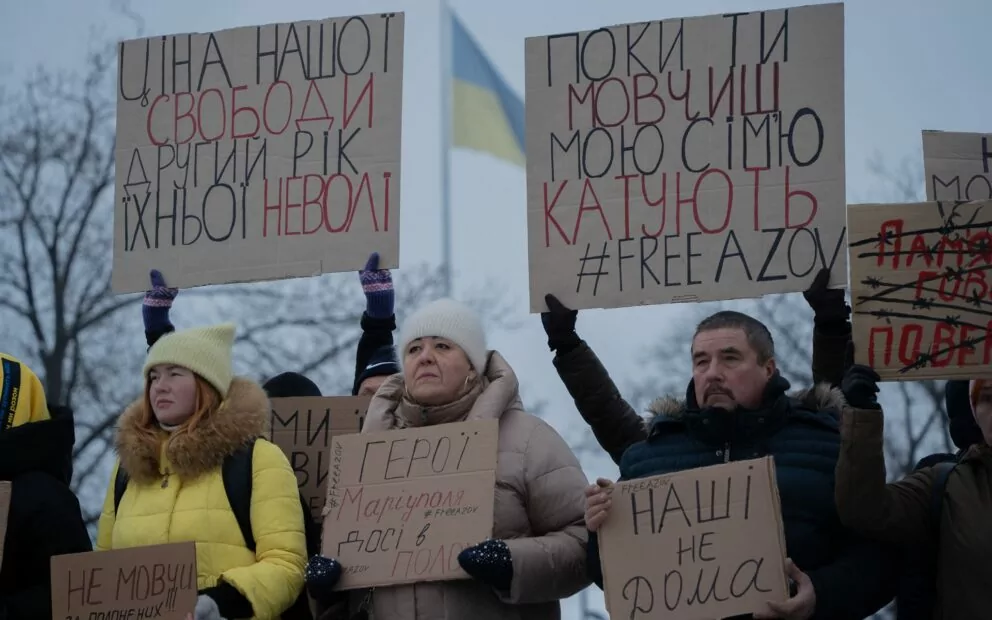
Russian abductions of children from Ukraine
Maria Lvova-Belova, the Russian commissioner for children’s rights, suspected of the abduction of children from Ukraine by the International Criminal Court, said that, since the start of the full-scale invasion, Russia “evacuated” more than 700 thousand children. Dmytro Lubinets confirmed that Russia abducted nearly 20,000 children from Ukraine’s occupied territories. Many of those came from orphanages. Ukraine has successfully returned 1,032 children from Russia. Right now, Ukraine lacks mechanisms that could help to get more of them out—and faces difficulties in providing mental support to those of them who have been returned to Ukraine.
On February 1, 2024, the Ombudsman of Ukraine, Dmytro Lubinets, said in an interview with Voice of America that Ukraine is collecting evidence of Russians forcibly deporting Ukrainian children, which can potentially allow Ukrainian lawyers to accuse Russia of genocide at the UN International Court of Justice.
“This is a genocidal policy, although we are not currently talking about the crime of genocide itself—[only] authorized institutions can [make this conclusion]. However, political decisions recognizing the genocidal nature of the war have been made, and, in this regard, we have the support of our international partners. It is essential to understand that the Russian Federation is doing everything possible to ensure we know nothing about the children they have abducted,” said Oksana Chervykova.
Gwara Media: So what role does the Office of Ombudsman play in returning Ukrainian children from Russia?
Oksana Cherviakova: We can’t share information about the return process publicly. I can only say that, in Kyiv, we already have a Barnahus [a child-friendly facility where multiple agencies—such as law enforcement, the criminal justice system, child protection services, and medical and mental health professionals—work together to assess and address the needs of children who are survivors or witnesses of violence. The aim is to provide a coordinated response to each child’s situation, ensuring their safety, well-being, and proper care while determining the next steps for intervention and support. — ed.] Employees from our office, along with other authorized structures such as the police and security services, conduct surveys and interviews with children who have returned to understand what happened to them and what kind of assistance they need. Pilot projects are being implemented in Kharkiv, Rivne, Dnipropetrovsk, Volyn, and Sumy regions, and we plan to open five more such Barnhuses next year. I don’t think we will be working exclusively with war crimes—e.g., domestic violence as a phenomenon does not disappear during war.
GM: Recently, journalists from Radio Free Liberty published an investigation about 50 Ukrainian children who were involved in the Youth Army (Yunarmiya), which constitutes a war crime. These children were recruited into the Youth Army from Russian-occupied Crimea and parts of Luhansk and Donetsk regions. Do you know if these individuals are involved in combat operations in the Kharkiv region?
Oksana Cherviakova: We don’t have data this precise, especially in the Kharkiv region, because these individuals are servicemen of the Russian Federation. Or they might not even have the status of combatant if we are talking about the so-called LPR and DPR armies [brigades formed from people from occupied territories of Donetsk and Luhansk regions — ed.] They are not an army because these regions are a part of Ukraine, and the only legally established military formation in this territory is the Armed Forces of Ukraine. The militarization of children and of their education in the Russian Federation are confirmed facts, though, and our office addressed this issue.
We can document war crimes, but we are not engaged in the official documentation process. That is the prerogative of law enforcement agencies. However, if the media reports on war crimes, we can forward the information [from their investigation] to authorized bodies. And we do that. We have also read [the report] about militarization of children, but it’s law enforcement agencies who work to ensure these crimes are documented and sufficient evidence is collected to hold perpetrators accountable.
At the same time, the temporarily occupied territories are inaccessible to law enforcement for evidence collection. Therefore, documenting war crimes, other international crimes, and even cases of state treason are challenging. These are the difficulties the entire Ukraine’s law enforcement system is dealing with, with the support of our international partners.
GM: Is it possible to recognize Russia’s aggression against Ukraine as genocide?
Oksana Cherviakova: The International Criminal Court deals with individual criminal responsibility, but the crime of aggression is currently outside its jurisdiction. Ukraine has recently become a party to the Rome Statute, whereas the Russian Federation withdrew its signature [after the occupation of Crimea — ed.], although there’s no formal procedure for such a withdrawal. The question of holding Russia accountable for the crime of aggression remains unresolved.
The most realistic option at this point is the establishment of a special tribunal, possibly through the United Nations. Russia’s ability to veto decisions complicates the situation in the Security Council. In the future, though, such a tribunal could operate under a statute, following the example of the Nuremberg Tribunal, or those for Yugoslavia and Rwanda.
Cover photo: Representative of the commissioner for human rights in Kharkiv region, Oksana Cherviakova, in Gwara Media newsroom / Photo: Liubov Yemets, Gwara Media
Hi, I’m Nazar Hlamazda, the journalist who interviewed Oksana Cherviakova. I translated it from Ukrainian for you to know more about human rights in the Kharkiv region at the moment when Ukraine is about to face a third year of Russia’s full-scale invasion. It’d also mean the world if you’ll consider supporting our Kharkiv-based media on Patreon, BMC, or PayPal.
